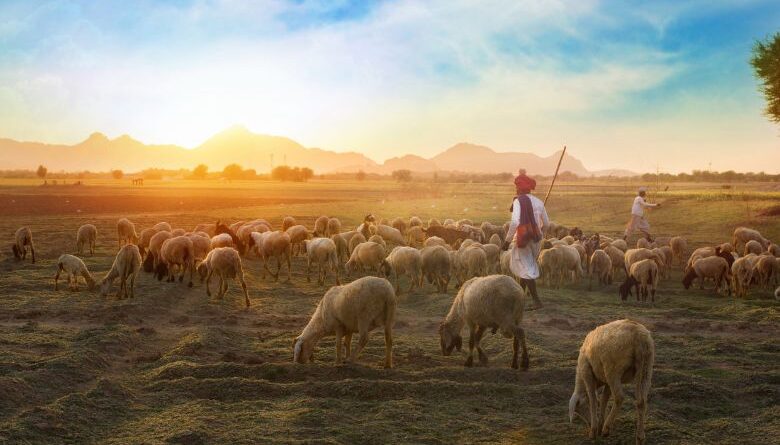AI in Agriculture: Precision Farming and Sustainable Practices
AI in Agriculture: Precision Farming and Sustainable Practices
Introduction
In recent years, the agricultural industry has undergone a significant transformation with the integration of Artificial Intelligence (AI) technologies. These advancements have paved the way for precision farming techniques, allowing farmers to optimize their practices, increase productivity, and embrace sustainable approaches. This article explores the role of AI in agriculture, focusing on precision farming and its impact on promoting sustainable practices.
The Evolution of AI in Agriculture
Over the years, agriculture has seen tremendous technological advancements. From simple tools to complex machinery, each innovation has aimed to streamline farming practices. The emergence of AI has taken this evolution to a whole new level, empowering farmers to make data-driven decisions and achieve unprecedented levels of efficiency.
Understanding Precision Farming
Precision farming is a farming management concept that relies on data analytics and AI to observe, measure, and respond to inter and intra-field variability in crops. This approach enables farmers to tailor their actions and allocate resources precisely where and when they are needed, optimizing yields and minimizing waste.
AI Applications in Crop Monitoring and Management
Enhancing Crop Yield Prediction
AI algorithms analyze historical data, weather patterns, soil conditions, and crop health to predict yields accurately. This information helps farmers plan their harvests better, anticipate market demands, and prevent potential losses due to unforeseen factors.
Implementing Smart Irrigation Systems
Water scarcity is a pressing concern in agriculture. Precision farming employs AI-powered smart irrigation systems that monitor soil moisture levels and weather forecasts. By delivering water only when necessary, farmers can conserve water and ensure crops receive the ideal amount of hydration.
Efficient Pest and Disease Management
AI-driven sensors and cameras detect early signs of pests and diseases in crops, allowing farmers to take prompt action. This early intervention minimizes the use of pesticides and prevents widespread infestations, promoting a healthier and more sustainable environment.
AI-driven Livestock Monitoring and Management
Automated Feeding and Health Tracking
AI-powered feeding systems assess the nutritional requirements of livestock and dispense appropriate portions. Additionally, wearable devices monitor the health of animals, detecting anomalies early on and facilitating timely veterinary care.
Predictive Breeding Strategies
AI analyzes genetic data to identify favorable traits in livestock. By applying predictive breeding strategies, farmers can selectively breed animals with desirable traits, leading to healthier and more productive herds.
Advancements in Agricultural Robotics
Autonomous Harvesting Machines
AI-driven autonomous harvesting machines can recognize ripe crops and harvest them with precision. This reduces the reliance on manual labor and optimizes the harvesting process.
AI-controlled Precision Planting
Precision planting involves AI-guided machines that plant seeds at optimal depths and spacing, enhancing germination rates and ensuring uniform crop growth.
The Role of AI in Supply Chain and Distribution
Inventory Management Optimization
AI optimizes inventory levels by analyzing market demand and supply patterns. This prevents overstocking or understocking and reduces food wastage.
AI-driven Predictive Shipping
AI algorithms predict delivery times and optimize shipping routes, minimizing transportation costs and environmental impact.
AI and Soil Health Management
Soil Analysis and Fertility Prediction
AI analyzes soil samples to determine nutrient levels and pH, enabling farmers to make informed decisions regarding fertilization.
AI-based Soil Nutrient Management
AI-powered systems provide real-time insights into soil health, allowing farmers to adjust nutrient levels dynamically for optimal plant growth.
Sustainability and AI: A Perfect Match
The integration of AI in agriculture aligns perfectly with sustainability goals. By promoting resource efficiency and reducing environmental impact, precision farming helps create a more sustainable agricultural sector.
Reducing Resource Consumption
Precision farming reduces the usage of water, fertilizers, and pesticides, resulting in resource conservation and cost savings.
Minimizing Environmental Footprint
By minimizing the use of harmful chemicals and optimizing processes, AI-driven agriculture reduces pollution and contributes to a healthier ecosystem.
Challenges and Limitations of AI in Agriculture
While AI offers numerous benefits, its implementation in agriculture comes with challenges:
Initial Setup Costs
Adopting AI technologies can be expensive, especially for small-scale farmers.
Data Privacy and Security Concerns
AI relies heavily on data, raising concerns about its privacy and vulnerability to cyber threats.
The Future of AI in Agriculture
The future of agriculture looks promising with AI at its core. As technology advances and becomes more affordable, the adoption of AI in farming is expected to become widespread, benefiting farmers and the environment alike.
Conclusion
AI has ushered in a new era of agriculture, one where precision farming and sustainability go hand in hand. By harnessing the power of AI, farmers can optimize their practices, improve productivity, and contribute to a greener and more food-secure world.
FAQs
- What is precision farming? Precision farming is a data-driven agricultural management approach that uses AI and analytics to optimize farming practices and resource allocation.
- How does AI help in crop monitoring? AI analyzes various data points such as weather, soil conditions, and crop health to accurately predict crop yields and enable better decision-making.
- What are the benefits of AI in livestock management? AI aids in automated feeding, health tracking, and predictive breeding, leading to healthier and more productive livestock.
- How does AI benefit the supply chain in agriculture? AI optimizes inventory management and shipping, reducing costs and minimizing environmental impact.
- Is AI in agriculture sustainable? Yes, AI-driven precision farming promotes sustainability by conserving resources and reducing the environmental footprint of agriculture.
- The Future of Autonomous Drones: From Delivery to Surveillance





Pingback: Humanoid Robots in Customer Service: Redefining Interaction | UTHSI 2023